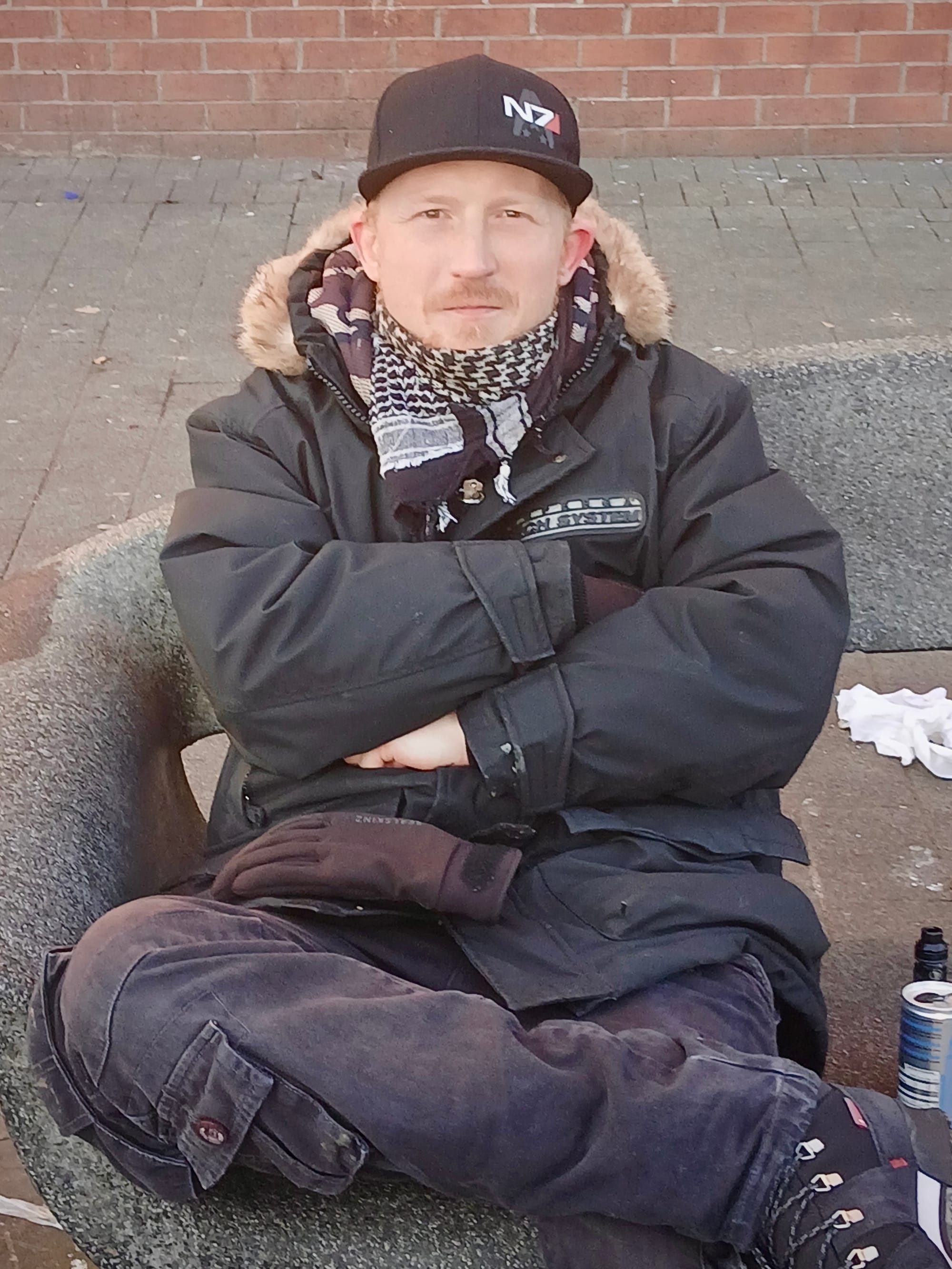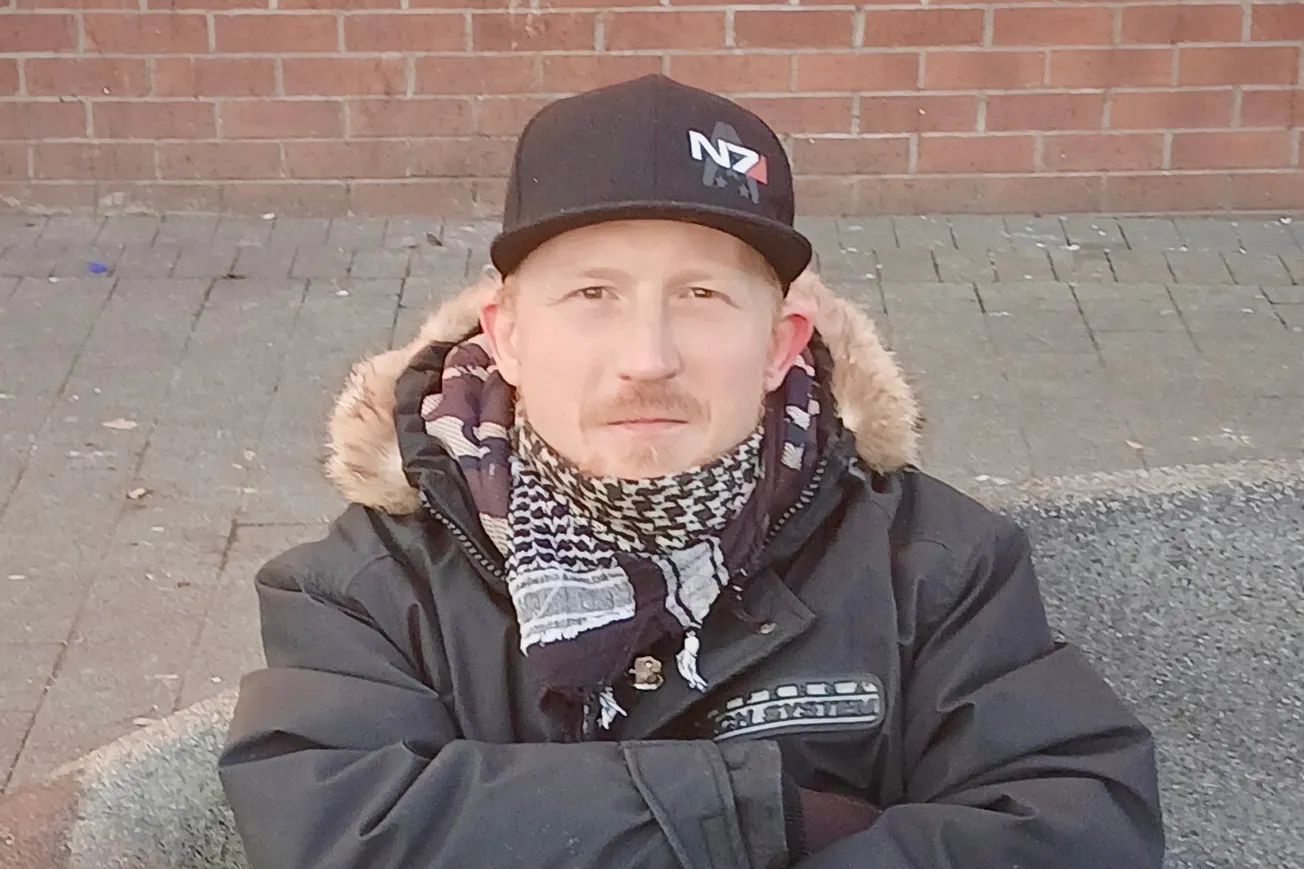By her own admission, around a year ago, Melissa was “in a very dark place”. The 35-year-old from Doncaster has suffered from mental health problems most of her adult life, but in early 2024 things were as bad as they had ever been. Melissa has a personality disorder, which has made it difficult to hold down a job. After bouncing through a few roles while never staying very long, last year she felt like she had hit rock bottom.
Fast forward 12 months and Melissa’s outlook couldn’t be more different. Sat behind the wheel of a range of luxury cars including Range Rovers, Jaguars, Audis — and even once an eye-catching Ford Mustang — she has finally found a job that she feels comfortable in. Working as a delivery driver for British Car Auctions, she ferries high-end cars to all corners of England and Wales. The days can be long, up to 10 or 11 hours in some cases, but she enjoys her own company and says she gets through a lot of podcasts on her mammoth motorway journeys. “It's a job that suits me really well,” she says. “And I get to drive some really nice cars as well.”
The man Melissa credits for the transformation is Michael Gill, an employment specialist at the South Yorkshire Housing Association (SYHA). Through messages, phone calls, and meetups at the St Catherine's Hospital cafe in Doncaster near where she lives, Melissa says that Gill gave her confidence and reassurance, and helped her manage some of the behaviours which meant she often got frustrated at work. “I just felt like I could just always talk to him,” she says. “In all honesty, he has changed my life. Without his support I would not be where I am now.”
There are around 75,000 people on long-term sick leave in South Yorkshire, a number that has gone up sharply since the pandemic. “South Yorkshire has high numbers of people who are economically inactive and ill health is the biggest driver of that,” says Tina Slater, the head of employment and careers at the Combined Authority. Behind each of those figures is a person, with a unique set of circumstances preventing them from finding and keeping work. But now, a new approach based on one-to-one support rather than punitive sanctions is showing signs of promise. If it works, it could address one of the biggest public policy issues of our time.
It’s called WorkWell and is aimed at people who have very recently become unemployed or are still in work but need help to retain their employment. (It builds on another scheme, Working Win, which has already supported 6,500 people back to work.) Launching Work Well last November, South Yorkshire’s Mayor Oliver Coppard said: “The poor health that scars our region doesn’t just hold back our economy, it stops people from making the most of their talents and enjoying the lives they deserve.”
South Yorkshire is one of 15 “vanguard” areas that are taking part in the scheme, following a trial that took place in Greater Manchester between 2019 and 2022. And according to an evaluation conducted by Sheffield Hallam University, it works. The study found that participants experienced a range of positive changes including reductions in low mood or anxiety, increases in life satisfaction, and improvements in coping and confidence.
It works by assigning support workers to clients to give one-to-one support on a voluntary basis. Joanne Abdulla, the head of advice told us this is far more effective than approaches based on sanctions. “Punitive models just don’t work,” she says. “If you sanction someone so they join up to one of these schemes under protest or under threat of having their benefits stopped, they are not going to be engaged.”
34-year-old Leigh Arnold, from Arbourthorne, has struggled with drug and alcohol addiction issues for most of his life; he started using when he was just 12 and only with superhuman effort managed to stop in his early 30s. After getting sober, he ended up working as an arborist and tree surgeon, but after working for a series of companies which didn’t seem to care about either him or his safety at work, he was desperate to find something better. “It got to the point where I was just fed up of it; all the employers were terrible,” he says.
Through the advice of an NHS therapist, Leigh ended up on Working Win (a predecessor of the Work Well programme), meeting up with a support worker from South Yorkshire Housing Association (SYHA). Due to his past experiences – as well as being a former addict, he also lived on the street for a time in his 20s – he really wanted to work with homeless people, drug addicts or other people with disadvantages. As luck would have it, SYHA was looking for a peer support worker with lived experience to help them build trust with rough sleepers on the streets of Sheffield. “I never expected to get the job when I applied for it,” he says. “But thanks to the help from the SYHA I went for it and got it.”
The Work Well scheme is entirely voluntary and is open to anyone over the age of 16 in South Yorkshire who is living with a health condition, or a mental or physical disability. People can be referred by the Job Centre, health care providers or employers, and get a maximum of four months support from SYHA to help them stay in their current job or find new employment. So far 356 people have been referred to the scheme, 158 of whom have already started.

Anya Duckitt is the work and wellbeing team leader for the SYHA. She says their employment specialists work with participants to identify what kinds of jobs might be suitable for them and signpost people to community services which might be able to help in terms of building skills. They can also speak to employers about arranging reasonable adjustments in the workplace, like flexible working hours, and they can also grant up to £300 per person to help with things like travel. Plus, they can assist with physical and mental rehabilitation, helping people access exercise classes and sleep hygiene courses.
Anya says working with clients on Work Well is fulfilling, but also challenging. Lots of people live with physical or mental health problems, or have caring responsibilities, which can make getting and maintaining a job difficult at best. “Everyone has got different issues, so we have to be like Swiss Army knives,” she says. “You never know what you’re going to have to deal with.”
Because the programme is entirely voluntary, Melissa says she hasn’t felt under pressure to return to work before she is ready or take a job that wasn’t suitable. “It's always been supportive; like a reassurance that you can do this and you are strong enough to do this,” she says. “It’s just helping you to find something that suits you, rather than just a job for the sake of it that isn't going to last very long.” Tina Slater from the Combined Authority agrees that, while being employed is generally better than not being employed, being in bad employment can make things worse. “Being out of work can have a negative impact, but we also have to make sure that people are happy in their job as bad work is bad for mental health and that will impact people's physical health.”
One potential drawback of Work Well is the time-limited nature of the support on offer; it’s set up to provide two months of support, with an additional two months offered to participants who find work while on the project. And working with clients with significant mental health problems can be extremely time-consuming. The Sheffield Hallam University study concluded that while the Greater Manchester programme had been helpful for people who were off sick from work and needed support to get back into their existing job, it was less effective than expected in moving people from unemployment into paid work. Nevertheless, the results show that 25% of the participants who had recently fallen out of work for a health condition were in paid work after 26 weeks, compared to just 17 per cent of those who had not been part of the programme. Still, is a maximum of four months’ support really going to make the difference people want it to?
For Melissa and Leigh, at least, it was enough to get them back on their feet; and they’re looking forward to the future with renewed confidence. Melissa is now planning to get an HGV license so she can drive the huge car transporters that British Car Auctions own, something she never imagined would have been possible before getting onto the programme. “This is the first time in probably four years where I'm actually doing really well, and I can see a forward plan and my next steps,” she says. “It’s given me a purpose.” For Leigh, he says he would never have been able to get the job were it not for the support of SYHA, but now that he has, he has high hopes for the future. “This will definitely open up some doors; I now don't know where I'll be in a couple of years.” he says. “If you've got someone on your side who knows what they’re doing, it just helps 100%.”







